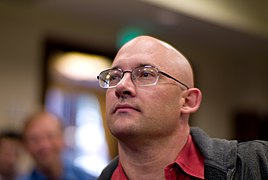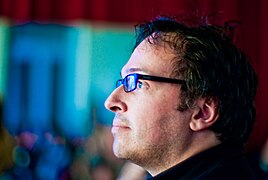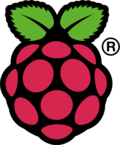Template:Main Page
Imagine a world in which every single person on the planet is given free access to the sum of all human knowledge.
| Fringe: from May 2014 | Hackathon: 6–10 August 2014 | Programme: 8–10 August 2014 |
What is Wikimania?
Wikimania is a 4000 person conference, unconference, festival, meetup, workshop, hackathon, and party, spread over five days in August 2014, preceded and followed by fringe events. It's the official annual event of the Wikimedia movement, where you'll discover all kinds of projects that people are making with wikis and open content, as well as meet the community that produced the most famous wiki of all, Wikipedia!
The main event itself is held in and around The Barbican Centre in London, UK. All are welcome, whether you're an expert, enthusiast, beginner or just curious!
Digital Collaboration:
How can software tools unlock our potential?
Wikimedia projects now have over 21 billion hits per month for content collaboratively created by over thirty million contributors, putting it in the top five sites globally, and one of the largest online communities. How does a community this size work, and how has it coped with such growth? more…
The Future of Education:
Now that Wikipedia has done everyone's homework, what's left to teach?
From primary school through to degree level and beyond Wikipedia is central to paradigm shift in what it means to 'know' and what it means to 'learn'. Capturing the sum of all human knowledge will be a long journey, but capturing much of the curriculum has already been achieved in the English language version. Whether it's 8-year-olds grabbing facts or university students tuning into new subjects and collating references, Wikipedia is the first port of call for millions of students. The sheer convenience of Wikipedia is challenging standard pedagogical approaches that implicitly assume information is scarce and difficult to duplicate. How should formal education respond now that discovering knowledge is no longer a complex skill, now that it's possible to complete assignments without having to 'think'? In this strand, we will explore the impact of Wikipedia across education and the many ways in which Wikimedia is supporting the practice of contributing to Wikipedia as a curricular activity. more…
Free Culture:
The sum total of human knowledge shouldn't be owned by anyone. How can we ensure this?
If you create something original, you're automatically granted legal ownership over it, which prevents others from re-using it without your permission. There have been a number of efforts to create international licenses that allow you to publish original work such that anyone can use it, but with multiple territories, formats and types of licenses, this is far from a simple task, nor is it widely understood. Many contemporary content creators share, remix and re-use content without the correct licenses, leading them liable to charges of intellectual property theft.
Part of the mission of the Wikimedia Foundation is to encourage people to create and collect content under free licenses, where it can be reused, remixed and shared for any purpose. more…
Open Scholarship:
What happens when the cutting edge of human knowledge is available to all?
In 2013 alone over 500,000 pieces of scholarly research were made open access, across all disciplines — an unprecedented number. These are all citable in Wikipedia, meaning they can be integrated into the encyclopaedia, contextualised and made discoverable by anyone in the world with an internet connection. This level of accessibility of cutting edge research has never existed before in history, and the possible outcome of empowering citizen scientists and streamlining academia in this way is beyond reckoning. more…
Open Data:
What can we build when the sum of all human knowledge is machine readable?
Wikidata is a new project of the Wikimedia Foundation: a free, collaborative, multilingual, secondary database, collecting structured data to provide support for Wikipedia, Wikimedia Commons, the other Wikimedia projects, and well beyond that. This may become one of the best open data repositories on Earth — what can we do with it? more…
Keynotes
-
Jimmy Wales, co-founder of Wikipedia
-
Sue Gardner, Executive Director of the Wikimedia Foundation
-
Lawrence Lessig, author of "Free Culture"
-
Clay Shirky, author of "Cognitive Surplus"
-
Danny O'Brien, Director of the Electronic Frontier Foundation
Partners and sponsors

















